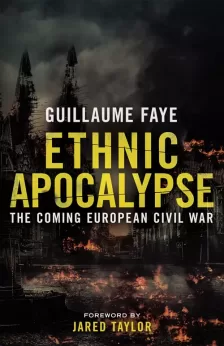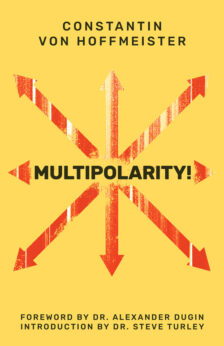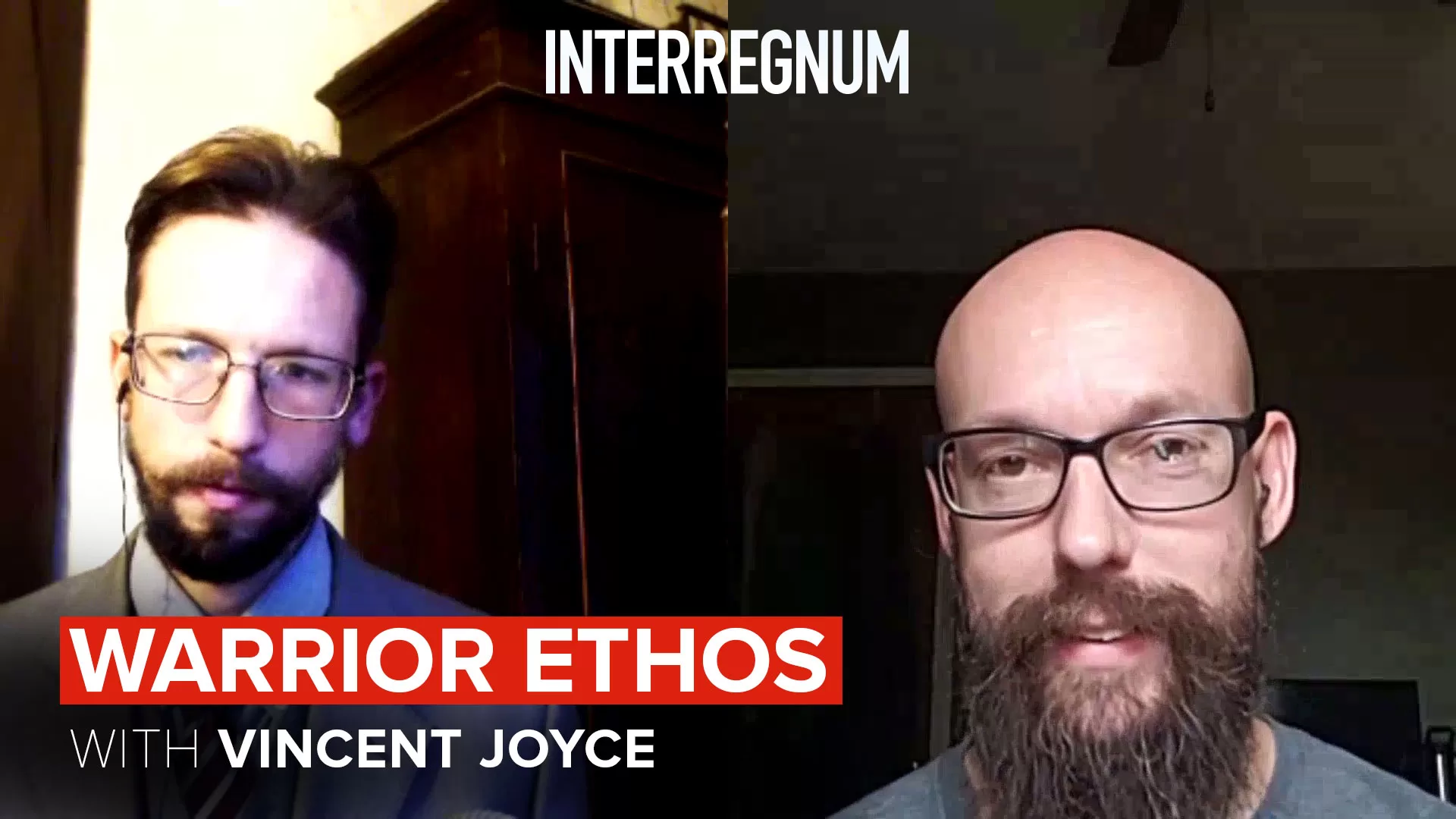Vincent Joyce talks to us about his recent novel The Long Goodbye, published by Arktos, and we delve into discussion of some of the book’s major themes — nostalgia, history, living meaningfully in times of crisis, and the warrior ethos both yesterday and today. We are led thence to the question of combat sports and martial arts as a means of developing the warrior spirit and reconnecting to tradition in lost times like our own.
Arktos
Making Anti-Globalism Global Since 2009.
Trending Posts
Recent reviews
-
 Archeofuturism
Rated 4 out of 5by Christian
Archeofuturism
Rated 4 out of 5by Christian -
 Ethnic Apocalypse
Rated 3 out of 5by Christian
Ethnic Apocalypse
Rated 3 out of 5by Christian -
 MULTIPOLARITY!
Rated 5 out of 5by Aleksandar
MULTIPOLARITY!
Rated 5 out of 5by Aleksandar
Recommended For You
 Podcasts
Eurosiberia Podcast #56: The Empire of Netflix
Podcasts
Eurosiberia Podcast #56: The Empire of Netflix
Eurosiberia Podcast #56: The Empire of Netflix
Arktos25 March 2025
 Podcasts
Eurosiberia Podcast #55: Post-Racial Nations
Podcasts
Eurosiberia Podcast #55: Post-Racial Nations
Eurosiberia Podcast #55: Post-Racial Nations
Arktos20 March 2025
 Podcasts
Eurosiberia Podcast #54: Trump and White America
Podcasts
Eurosiberia Podcast #54: Trump and White America
Eurosiberia Podcast #54: Trump and White America
Arktos12 March 2025


This was wonderful. A couple quotes in particular remain with me. At 27:30min, “Imagination is what ultimately builds reality.” That is a keeper. I am stealing it. And at 40:40min–I am still laughing–“Things started changing when projectiles got involved.” This is an important principle that every young man should realize in connection with barroom brawls, backstreet fighting—or primitive jungle warfare, for sure. I became convinced that projectiles were key to boy deep-biology when I saw a student toss a crumpled-up ball of paper across the classroom into a waste basket. I looked, paused and recognized in myself the impulse to do the same. “Good shot,” I thought, and continued writing on the board. I remember the days before my first (and only) growth spurt. I was losing every after-school battle. I recall what my Dad did. It was one of those acts of parenting that lasted forever. (And it was Mom’s idea and her blessing rather than interference.) Dad and I would push all of the living-room furniture against the wall and we donned a couple pair of winter gloves a piece. Then, we proceeded to pound the daylights out of each other, landing very real punches. (I understand that Dad exercised some significant punch pulling, having once been a championship weight lifter.) I loved it! I looked forward to every night after dinner with my “quality time” with Dad trying to plaster him. I loved him all the more knowing why he was doing it for me. The “pain eating” is another good principle pointed out in this interview (I am a bee-man, myself). It is good to be able to suffer risk, pain and discomfort. It is also good to transfer tolerance of physical pain to moral courage as well. I suggest fighting something like a legal battle as one option. There is nothing like realizing at 2:30 a.m. that another 30 minutes of sleep will be pointless, and simply marching in misery towards the computer with a nasty cigar billowing smoke and then banging out, non-stop, a many-paged legal brief. Don’t worry, do good stuff with abandon and the opportunities to litigate will arise. As for the cigar, I figured out why it works, and the cheaper the better. It tastes so nasty that any slighter nastiness such as a court battle or objectionable writing task pales in comparison. Plus, puffing a cigar instills a bit of General Curtis LeMay when being warned that smoking around a fueled-up fighter plane could cause it to explode: “It wouldn’t dare.” I will circulate this to some friends, friends with children. It sounds like a great book to purchase. Thank you, Gentlemen—or should I say, “Wildmen?”